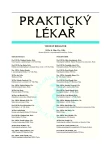Globalisation processes and harmonisation of the work of ethics committees in EU
Authors:
L. Zamykalová; J. Šimek
Authors‘ workplace:
Vedoucí: doc. MUDr. Jiří Šimek, CSc.
; Jihočeská univerzita v Českých Budějovicích
; Zdravotně sociální fakulta
; Katedra filosofie a etiky v pomáhajících profesích
Published in:
Prakt. Lék. 2009; 89(1): 25-29
Category:
Of different specialties
Overview
The paper is a reflection on current attempts to harmonise the work of ethics committees in the EU within the context of ongoing globalisation. The question of the universality of the Euro-Atlantic universal ethical principles and their applicability in everyday practices in countries outside Europe and North America is discussed. The process of harmonisation, globalisation and standardisation in the area of clinical research is necessary but not without its problems. In the discussion of three institutional attempts at the globalisation of research ethics principles (Global Forum on Bioethics, International Conference on Harmonisation of Technical Requirements for Registration of Pharmaceuticals for Human Use, and harmonisation of ethics committees in the EU) authors argue that dichotomisations of global and local, centralisation and decentralisation are not justified. It is possible to harmonise, standardise and globalise the area of ethical decision making in clinical research; but the meaning of various seemingly neutral concepts will always be open to local reinterpretations and political and power conflicts and debates.
Key words:
globalisation, harmonisation, research ethics, ethics committees.
Sources
1. Abraham, J., Lewis, G. Regulating Medicines in Europe: Competition, Expertise & Public Health. London: Routledge, 2000.
2. Abraham, J., Reed, T. Trading risks for markets: The international harmonisation of pharmaceutical regulation. Health, Risk & Society 2001, 3, 1, p. 113-128.
3. Abraham, J., Lawton-Smith, H. (eds.) Regulation of the Pharmaceutical Industry. London: Palgrave, 2003.
4. Abraham, J. Drug trials and evidence bases in international regulatory context. BioSocieties 2007, 2, p. 41-56.
5. Berg, M. Rationalizing medical work. Decision-support technique and medical practices. London: The MIT Press, 1997.
6. Berg, M., Timmermans, S. The gold standard. The challenge of evidence-based medicine and standardization in health care. Philadelphia: Temple University Press. 2003.
7. Goffman, E. Všichni hrajeme divadlo. Praha: Nakladatelství studia Ypsilon 1999. (orig. pub. 1956).
8. Hedgecoe, A., Carvalho, F., Lobmayer, P., Raka, F. Research ethics committees in Europe: Implementing the directive, respecting diversity. Journal of Medical Ethics 2006, 32, p. 483-486.
9. Kass, N.E., Maman, S., Atkinson, J. Motivations, understanding, and voluntariness in international randomized trials. IRB, 2005, 27, 6, p. 1-8.
10. Marshall, P., Koenig, B. Accounting for culture in a globalized bioethics. J. Law Med. Ethics 2004, 32, p. 252-266.
11. Mol, A. Body multiple. Ontology in medical practice. Durham: Duke University Press. 2002.
12. Sabik, L., Pace, C.A., Forster-Gertner, H.P. et al. Informed consent: Practices and views of investigators in a multinational clinical trial. IRB 2005, 27, 5, p. 13-18.
13. Úmluva o lidských právech a biomedicíně. Ministerstvo zdravotnictví ČR, Praha 2000.
14. Zamykalová, L., Šimek, J. Informovaný souhlas ze sociologického pohledu. Časopis lékařů českých 2006, 145, 5, p. 410-413.
15. Zamykalová, L., Šimek, J. Informovaný souhlas v praxi na českých klinikách. Prakt. lék., 2007, 87, 7, s. 406-413.
16. Zamykalová L., Šimek J. Etické aspekty sociologického výzkumu nemocných. Prakt. lék., 2007, 87, 6, s. 339-342.
17. CIOMS (Council for International Organizations of Medical Sciences): International Ethical Guidelines for Biomedical Research Involving Human Subjects [on-line]. Dostupné na http://www. cioms.ch/frame_guidelines_nov_2002.htm.
18. Convention on Human Rights and Biomedicine. Convention for the Protection of Human Rights and Dignity of the Human Being with regard to the Application of Biology and Medicine. Council of Europe, 1999. [on-line]. Dostupné na http://conventions.coe.int/Treaty/en/Treaties/Html/164.htm.
19. Helsinská deklarace: český překlad verze z r. 2000 [on-line]. Dostupné na http://old.sukl.cz/ cs13klinhodnoc/cs13helsdeklarace.htm.
Anglický originál, poslední verze z r. 2008. [on-line]. Dostupné na http://www.wma.net/e/policy/ pdf/17c.pdf.
20. Směrnice 2001/20/EC. Official Journal of the European Communities, 1. 5. 2001, L 121/34. [on-line]. Dostupné na
http://eur-lex.europa.eu/LexUriServ/site/en/ oj/2001/l_121/l_12120010501en00340044.pdf.
21. WHO: Handbook for Good Clinical Research Practice (GCP), WHO, Ženeva 2002 [on-line]. Dostupné na
http://whqlibdoc.who.int/publications/2005/924159392X_eng.pdf.
Labels
General practitioner for children and adolescents General practitioner for adultsArticle was published in
General Practitioner

2009 Issue 1
- Advances in the Treatment of Myasthenia Gravis on the Horizon
- Hope Awakens with Early Diagnosis of Parkinson's Disease Based on Skin Odor
- Memantine in Dementia Therapy – Current Findings and Possible Future Applications
- Memantine Eases Daily Life for Patients and Caregivers
- Possibilities of Using Metamizole in the Treatment of Acute Primary Headaches
-
All articles in this issue
- The attitude towards long-term follow-up and coping with stress in patients diagnosed with melanoma
- Globalisation processes and harmonisation of the work of ethics committees in EU
- Chronic wound treatment in old age under supervision of a geriatrician
- Subacute thrombosis of two stents as a cause of acute myocardial infarction
- Estimation of renal function changes on the basis of serum creatinine levels – potential and limitations
- Identity of ethics committees, identity of ethicists
- Vaccination against cervical cancer and other sequelae of human papillomaviruses
- Current possibilities for the treatment of patients with epilepsy.
- Regulatory T cells and their prognostic value for head and neck oncology
- Nutritional care in premature babies after hospital discharge
- General Practitioner
- Journal archive
- Current issue
- About the journal
Most read in this issue
- Chronic wound treatment in old age under supervision of a geriatrician
- Nutritional care in premature babies after hospital discharge
- Current possibilities for the treatment of patients with epilepsy.
- Subacute thrombosis of two stents as a cause of acute myocardial infarction
